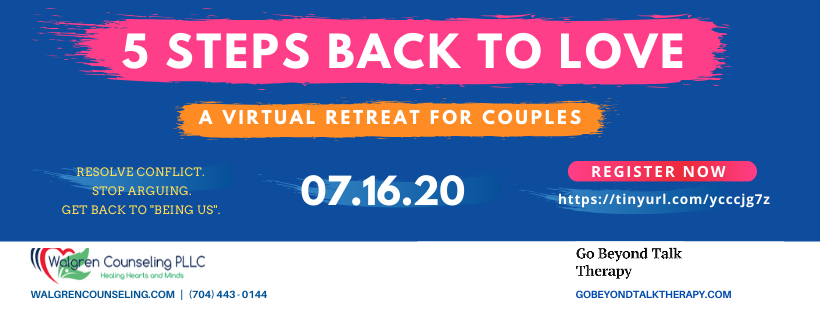Mon to Fri: 9:00am to 6:00pm
Have Questions?
Mon to Fri: 9:00am to 6:00pm
10850 Sam Black Road, Suite B, Midland, NC 28107

Let’s be realistic for a while and accept the fact that anger is an extremely common emotion- it’s just like feeling happy, sad and overwhelmed! However, not having any control over your angry emotions can be problematic; it can immediately pave the way toward interpersonal misunderstandings, road rage, violence, etc. Men who can express their anger in a controlled fashion will be able to navigate through the situation; others might opt for men’s anger management in Monroe and seek professional help.
In this blog, we will delve deeper into the various aspects of men’s anger issues, along with the benefits of anger management therapies. Stay tuned.
Men undergo a lot of emotional toll; they find it hard to talk about it. As a result, they end up showing their anger to hide these gut-wrenching feelings:
Now, the time to scheme through the benefits of men’s anger management therapy has arrived; take a look:
There are certain factors that typically trigger your anger; identifying them is the key to managing your frustration in the first place. The moment you are able to spot the patterns and themes behind your anger, controlling it will become as smooth as a cake.
In an anger management therapy session, the counselor will never ask you to ignore your feelings and defend your anger. Instead, they will talk about ways to cope with the given situation. It will improve your interpersonal relationships while safeguarding you from a fight-or-flight situation. Therapy for relationship issues in Harrisburg also involves sessions on coping techniques; it is an art that can contribute to your overall well-being.
Hard feelings like anger are potent enough to make you feel anxious and stressed. It makes you feel drained, both emotionally and physically. Some of the consequences that you might deal with because of anxiety include muscle pain, high blood pressure, insomnia, etc. Thanks to the advent of anger management therapies, reducing the possibility of stress and anxiety is easier now.
Last but not least, a calm mind and positive mindset help you enjoy a healthier lifestyle. Anger issues often force the person to depend on substance abuse. In such cases, you can also opt for substance abuse treatment in Concord!
Dear men, it’s okay to be angry, but the moment it starts bothering you, make sure to take steps to heal and cure. We at Go Beyond Talk Therapy have got your back. Book an online appointment with us, and we promise to help you in the best way possible. Apart from men’s anger management, we offer other therapy sessions and services like online male mental health in Huntersville, therapy for relationship issues and pornography addiction, etc. With just a few clicks, you can contact us!

For so many men out there, opting for therapy sessions often sounds like a big deal. To be honest, seeking help from mental health professionals is normal, and if you are finally willing to book an appointment, a pat on the back awaits you. While this kind of approach is often avoided by men, there’s no harm in speaking your heart out and prioritizing your mental health.
Therapy sessions have helped individuals to take a step toward well-being and self-care. Perfectly suitable for men belonging to different age groups, therapies can actually be a turning point in your life. From men’s anger management in Monroe to other mental health concerns, you can rely on expert therapists for tailored solutions.
In this blog, we are going to talk about ‘how to prepare yourself for your first therapy session’. The idea of stepping into a room and sharing your whereabouts might be a little intimidating, and that’s why we are here to help you out.
There are multiple stigmas associated with men’s therapy, and if you are choosing to overlook the ‘shame’ and finally focus on your mental health, you truly deserve a shoutout. Therapies offer a lot of positive benefits, they can change you as a person and help you lead a fulfilling life. Seeking help should never be a problem, and if you are breaking the stigma, you are definitely worth the praise.
‘So, what brings you to therapy?’ – one of the most common questions asked by every therapist out there. Knowing your ‘why’ will enable them to develop a tailored session that aligns with your healing process. Before getting all prepped up for your therapy session, take some moments to jot down the symptoms, bothersome behaviors and emotions, current situations, past experiences, and other stress factors. Staying clear regarding your own concerns will make it easier for the therapist to figure out your ongoing inner thunderstorms.
Are you wondering how to put together all the reasons? It’s pretty simple, grab your journal and pen and start making pointers- sit in a comfortable and relaxing environment so that you can avoid disturbances and distractions.
Therapy sessions have no room for misleading information, it will only add to more problems and you won’t receive the solutions you are looking for. That’s why you must choose to be open-minded, frank, and honest with these experts- top-notch transparency is the key to a successful therapy.
In an online male mental health in Huntersville, the first and foremost thing you must do is stay truthful to yourself. Since lying about certain things can pave the way for foul relationships, mistrust, and a prolonged healing process, refrain yourself from doing it. You can stand in front of a mirror and face yourself before facing others. You got it!
Therapy sessions are meant for your comfort, simply be who you are and that’s more than enough. Whether you are wearing formal, informal, jeans, or trousers, your therapist isn’t sitting there to judge you. Put on outfits that make you feel confident and good about yourself, and keep the comfort factor on top of everything.
Is the thought of sharing your dark secrets with a stranger scaring you? Are you wondering where you should begin the conversation? Don’t worry, these kinds of turmoils are normal and manageable. All you have to do is figure out ‘what to say’ in therapy and prepare your own list. You can talk about these few things while seeking expert help from therapy sessions:
• Mental health therapies are often related to drastic changes undergone by an individual. Talk about the events with your therapist and tell them what kinds of incidents have changed you as a person.
• Talk about challenges that you have been facing for the last few days or months (problems in sleeping, trusting others, etc.). Your mental health therapist will assist the condition and help you to navigate through the situation.
• You can share information about your family members and talk about your background a bit.
Therapists need to adhere to certain guidelines and maintaining top-notch confidentiality is definitely one of the most important. You can express your words and thoughts without any fear, these therapists will keep every word inside the four walls of the room. You can seek advice related to pornography addiction recovery in Matthews, they will guide you through thick and thin without passing any judgment.
Always be easy and kind to yourself, speaking about the not-so-bright side of your life takes a lot of courage after all! Life isn’t a bed of roses, and nobody has asked you to deal with every thorn that’s thrown toward you. Keep that smile intact on your face and opt for therapies whenever you feel like it. These refreshing sessions are potent enough to keep your concerns and issues at bay. Remember this- from substance abuse treatment in Concord to solving relationship issues, therapies can solve it all. So, be considerate of yourself in the first place and give enough time for things to change and reflect.
Now that you are aware of the preparation tips for your first therapy session, you can get in touch with Go Beyond Talk Therapy and opt for men’s issues therapy in Concord Harrisburg. Our professional therapists understand how difficult it is for a man to walk into a therapy session, and we wholeheartedly appreciate you for taking the first step. Whether your stressful jobs are bothering you or relationship issues are causing serious problems, our ‘manning up’ sessions are everything you need. Our practical and expert support will expose you to the ultimate and much-needed climax.

Join us on November 16th, 2019, for an intensive retreat for couples in North Carolina.
Resolve conflict. Stop arguing. Get back to “being us.”
Solo attendees and couples are welcome.
Join us for this special 1-day couples retreat in North Carolina. Click here to RSVP.
To learn more about this retreat and our services for couples, please give us a call or fill out the contact form with a request for details, and we will get back to you.

Join us on February 28, 2020, at the MAHEC Education Building in Asheville, North Carolina, to learn about Phil DeLuca’s “stop talking and start communicating” approach to couples therapy, and how you can incorporate it into your own practice.
Philip DeLuca, LCSW, has integrated the latest findings in neuroscience research with other medical advances to form a novel and holistic conflict resolution treatment approach. Interwoven into this seminar is vital information on: real-life ramifications to the well-known fight/flight response, putting neuroplasticity to the test, wisdom from the field of epigenetics, and the “Gut-Brain Axis.” Phil’s scholarly inquiries—in combination with his novel and applied work with couples which spans several decades—are presented as a radical departure from commonly accepted theoretical approaches. It’s a fresh take on “why it happens” and “what to do about it,” that therapists may immediately apply in practice.
Mental health professionals including: substance use disorder counselors, social workers, psychologists, counselors, marriage and family therapists, clergy, school counselors, and other professionals interested in this subject.
NAADAC: This course has been approved by MAHEC, as a NAADAC Approved Education Provider, for educational credits. NAADAC Provider #165445. MAHEC is responsible for all aspects of their programming.
Approved for 6.0 hours.
NBCC: MAHEC has been approved by NBCC as an Approved Continuing Education Provider, ACEP No. 5514. Programs that do not qualify for NBCC credit are clearly identified. MAHEC is responsible for all aspects of their programs.
Approved for 6.0 hours.
Psychologists: MAHEC is recognized by the NC Psychology Board as an approved Provider of Category A Continuing Education for NC Licensed Psychologists.
Approved for 6.0 hours Category A.
CEUs: MAHEC designates this live continuing education activity as meeting the criteria for 0.6 CEUs as established by the National Task Force on the Continuing Education Unit.
Contact Hours: MAHEC designates this live continuing education activity as meeting the criteria for 6.0 contact hours.
Download this PDF for more information and to fill out the registration form.

Join us on Thu, July 16, 2020 8:00 AM – 5:00 PM EDT for this life-changing online couples workshop!
If you answered yes any of the above, learn and apply in one day the revolutionary new approach to resolving conflict and stop an argument immediately.
“5 Steps Back to Love” is a 1-day intensive online couples workshop to help get your relationship back from the “Dead Zone” and get back to “Being Us”.
Take 5 simple steps to learn what “UnTalk” Therapy can do for your relationship and help you and your partner out of the dead zone.
A: The relationship Dead Zone is a dangerous place. It needs to be navigated wisely and gingerly. Before you decide on a therapist who’ll escort you and your loved one out of your Dead Zone, 3 out of 4 marriages end after traditional talk therapy. That’s because expressing yourself while in the wrong state of mind can actually cause you to slide deeper into the Dead Zone. But if you understand the workings of your brain chemistry before you begin the climb, your chances of escaping the Dead Zone improve exponentially.
Click here to sign up for the webinar.
*Disclaimer: The information provided in this online workshop should not be construed as personal therapy advice or instruction. No action should be taken based solely on the contents of this workshop. Readers should consult appropriate health professionals on any matter relating to their health and well-being. The information and opinions provided here are believed to be accurate and sound, based on the best judgment available to the presenter, but readers who fail to consult appropriate therapy authorities assume the risk of any consequences.

Listen to Phil DeLuca and Douglas talk about communication for the 21st century.
Phil’s Un-Talk Therapy is the most efficient, least expensive method of ending relationship conflict and making communication fun again – just ask any of his clients who’ve “tried everything.”
To talk to Phil about your relationship, call today, or fill out the contact form and click Send.

148 Words of Catharsis & Self Management
Phil and Dr. Charles Parker of Core Brain talk about how catharsis may work for the individual but doesn’t work for the couple or for the family team – indeed it can wreck the business team. Feeling mismanagement explored.
Listen to the full interview here.

When we find ourselves in a confrontational situation we instinctively go into “fight or flight” mode. If we don’t have the right tools to control the wave of emotions we experience, we will oftentimes go down a path we’ll later regret. This is especially true in our relationships. Disagreements are inevitable in any relationship, and these disagreements can quickly put us into this “fight or flight” mindset.
Listen to the full interview here.

Phil DeLuca was a guest on The Segilola Salami Show. Philip shared his strategies to help families communicate better and deal with anger management when they stop talking. Click here to listen.
To talk to Phil about yourself or your relationship, call today, or fill out the contact form and click Send.
Listen to Phil DeLuca as a guest on Raw Relationships.
To talk to Phil about yourself or your relationship, call today, or fill out the contact form and click Send.